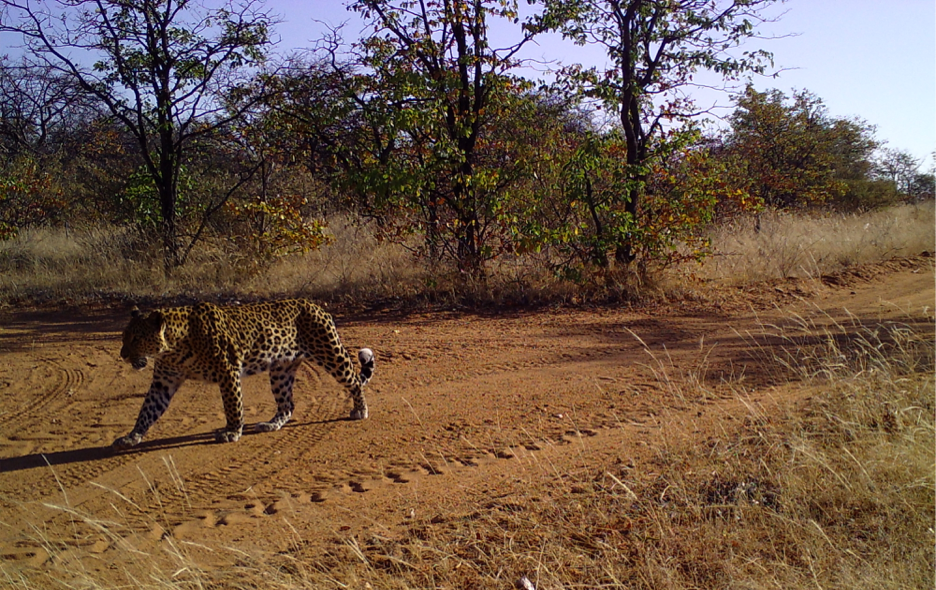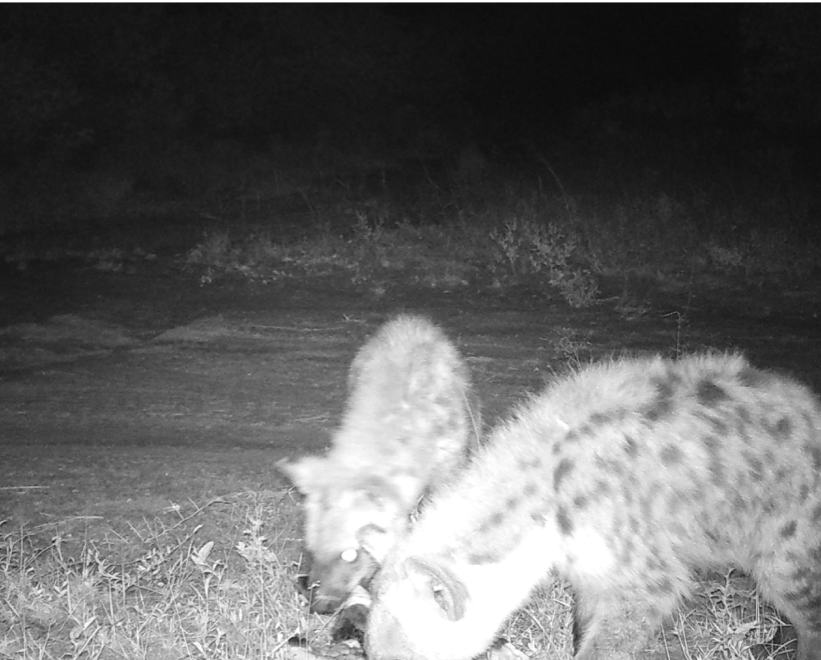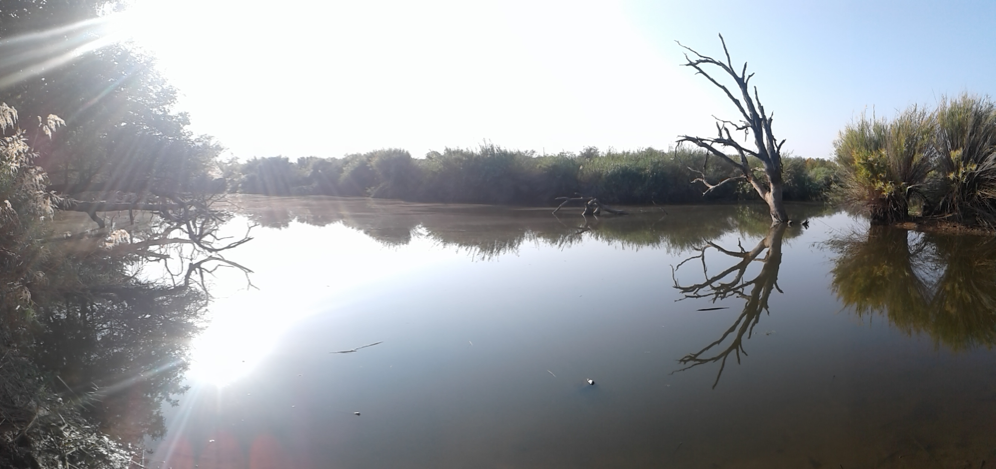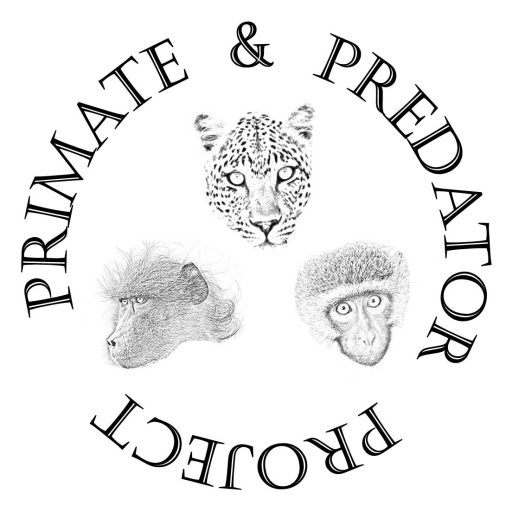By Philip Faure
A few months ago, we were contacted by Cheetah Outreach to set up a new camera trapping grid with them in the Platjan area, to establish leopard densities. Farmers in the area have been experiencing high levels of livestock-carnivore conflicts and would appreciate more information regarding predator abundances and densities. At last, after tracking down farmers, landowners, managers, and predator signs, this camera grid is now up and running.
 Leopard photographed in Platjan © Limpokwena Nature Reserve
Leopard photographed in Platjan © Limpokwena Nature Reserve
Initially, we were contacted to help conduct a leopard density estimate for the area, but after speaking with some of the local farmers it became clear that there is a big population of spotted hyena as well. At least that’s the general belief. It would be great to see what the actual density estimates for this area are. One thing is for certain, there are definitely a lot of leopard and hyena signs in the area. Across most of the area we placed cameras there were numerous tracks or scat found of both leopards and hyenas. Which makes this study all the more exciting from a researcher’s point of view.
 Spotted hyena juveniles from Limpokwena Nature Reserve, Platjan © Limpokwena Nature Reserve
Spotted hyena juveniles from Limpokwena Nature Reserve, Platjan © Limpokwena Nature Reserve
Leopard and spotted hyena are believed to cause the most damages to livestock farmers. Many farmers use Anatolian livestock guarding dogs with their herds in order to minimize depredation by predators. Deon Cilliers from Cheetah Outreach has placed several dogs in the area to help farmers and predators live together. Likewise, Rox Brummer from Green Dogs Conservation has also worked a lot in the area to help mitigate human-carnivore conflict. Together, they have made a significant impact and their Anatolians have proven successful.
We have now placed 68 cameras over a 240 km2 area. Being situated right next to the Limpopo River, which divides South Africa and Botswana, Platjan has some amazing wildlife. Elephants visit from across the Botswana border, hippos float in murky waters, you see an occasional log drifting down the river only to realize it’s actually a crocodile, and dassies hold the fort on their little rocky outcrops. There are many different carnivores in the area, including occasional visits from some of the last free ranging South African lions, African wild dogs, cheetahs, hyenas, leopards, aardwolf, civets, genets, African wildcats, caracal, and servals. Truely a diverse landscape and as wild as can be on privately owned land.
 The Limpopo River forms the border between South Africa and Botswana.
The Limpopo River forms the border between South Africa and Botswana.
What an amazing place this is to do camera trapping. Special thanks go out to Annie Casey (PPP Predator Assistant and Data Scientist) for helping set up the grid. Also, many thanks to Riley and Syanne from the Limpokwena Nature Reserve for offering us the most comfortable accommodation with great chats and laughter around the fire.
 Mogalakwena River, Limpokwena Nature Reserve.
Mogalakwena River, Limpokwena Nature Reserve.
Watch this space for project updates!

Leave a comment